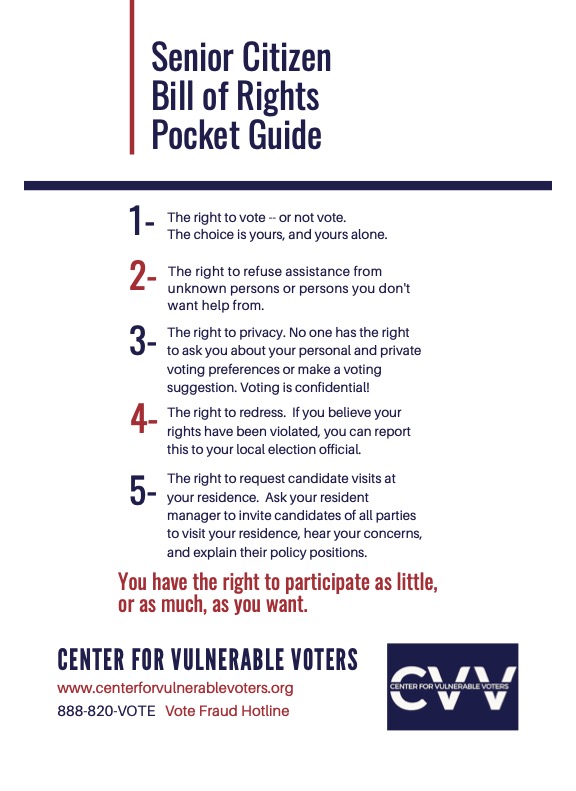Senior Citizen Voter Bill of Rights
Voting is a cherished and precious right for all Americans — the American Constitutional Rights Union has been fighting for free and fair elections for decades. Now, we must turn our efforts to protect and preserve the right to secure voting for our senior citizens.
For a variety of reasons, senior citizens may face voting challenges. Transportation hurdles, technology advances, mobility issues, and other aging-related factors can make it difficult for seniors to vote in person or via absentee ballots. Often, due to living arrangements in assisted care facilities, seniors must trust and rely on others for voting assistance. Sadly, these conditions make fraud more likely.
We must do everything in our power to make sure the votes of our senior citizens are protected and counted fairly. This Senior Citizen Voter Bill of Rights outlines what our senior citizens can and should expect from our election systems — an environment respecting the voting choices of our citizens while making it easy to vote and hard to cheat.
